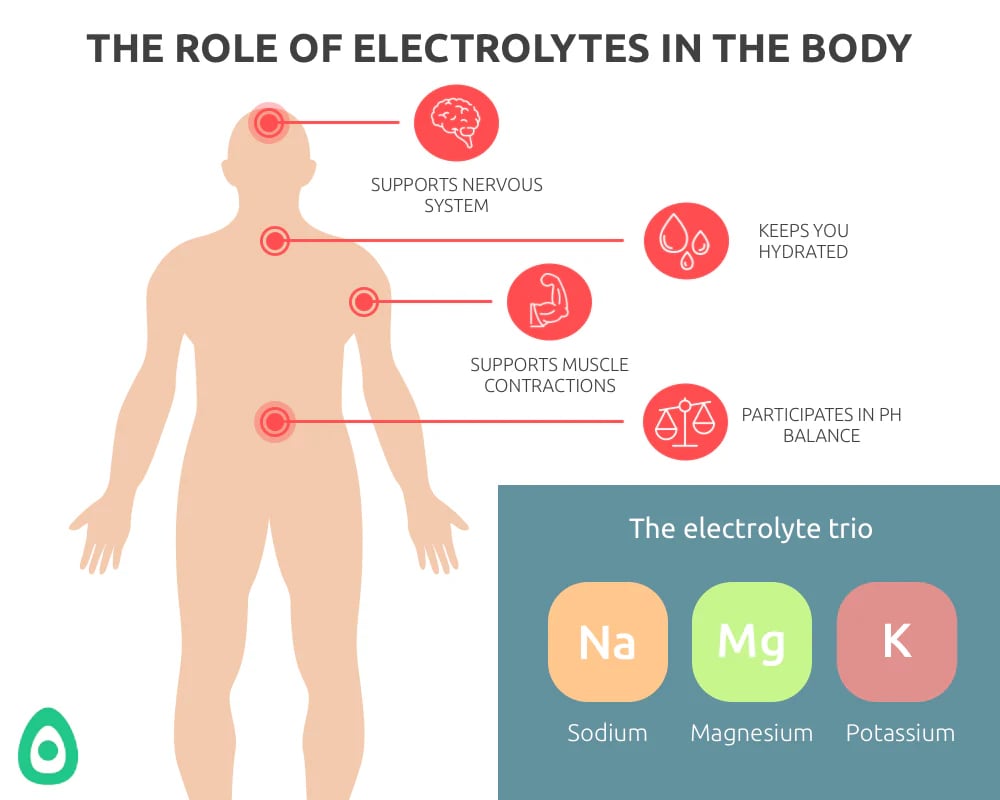Magnesium, A Heavy Hitter
Discover how this essential electrolyte supports everything from muscle function to mood, and why so many of us may be unknowingly deficient. Learn the signs of magnesium deficiency, the best food sources, and when supplementation might help in our latest blog post.
Lucas Benson, RN
3/26/20253 min read


In our earlier post on hydration, we mentioned the electrolyte magnesium. This single electrolyte is responsible for a ridiculous number of critical processes within the human body. Magnesium is acquired mainly through the diet, and the common western menu is drastically void of this all-important mineral. Studies indicate magnesium-deficiency is responsible for a large swath of physical symptoms and is one of the leading underlying causes of chronic disease around the world. By ensuring we receive enough magnesium, either through our diet or via supplementation, we can address a common culprit at the root.
Magnesium is necessary for a staggering number of processes in the body including nerve and muscle function, the regulation of blood pressure, maintaining blood sugar, bone density regulation, DNA and RNA function and repair, protein synthesis and more than 300 enzymatic processes. If serum levels are low the magnesium in bones and muscles will be pulled to help maintain adequate available levels. This can lead to potentially devastating symptoms affecting the heart, kidneys and bones. By being magnesium deficient we make ourselves vulnerable to a dizzying number of ailments. From minor aches and pains, to irritability, to potentially life-threatening disorders.
Magnesium Deficiency Considered Widespread
Studies suggest that anywhere from 50-75% of all adult Americans do not get enough magnesium in their diets. This astonishing figure is most likely low, as serum levels do not reflect bio-available levels within the bones, muscles and soft tissues. With serum levels able to mask potential deficiencies, our only evaluating diagnostic probably leads to underdiagnosing. Some studies estimate over 90% of adults do not regularly ingest enough magnesium.
The suggested amount of magnesium for adult men is 270-400mg per day, and 280-300mg for adult women. While some nutrients are found in a variety of foods, magnesium is a bit more particular. Foods that are a good source of magnesium include nuts (specifically almonds and cashews), avocados, beans (especially black beans), salmon and halibut, whole grains, bananas, leafy greens, and dark chocolate.
There are also a host of magnesium supplements available, which can help bolster the gap to ensure adequate daily intake. The daily accumulation of enough magnesium is the only way to ensure are bodies are not deprived of this powerhouse nutrient. When the diet is not able to provide enough, supplementation may be necessary.
What Magnesium Deficiency Can Look Like
While the toll that magnesium deficiency can take is vast, there are some early minor symptoms that can alert you to being deficient including muscle weakness and cramping, twitching and spasms, a reduced appetite, numbness, nausea and vomiting, and irritability or anxiety. In more severe deficiencies there may be seizures, confusion and irregular heartbeat.
Certain conditions like diabetes or kidney disease can make someone more susceptible to magnesium deficiencies. Likewise, some medications, like those with a diuretic effect, can lead to magnesium deficiency by evacuating magnesium already inside the body's systems.
Mag-nificent
Magnesium deficiency is thought to be a common cause of many of the afflictions that plague us in our day to day lives. The muscle aches and strains we often find ourselves needing to alleviate might be rooted in dietary deficiencies. In turn, it might be possible to address these sore spots by giving attention to foods that can increase our intake of magnesium, giving rise to the best conditions possible for our bodies to conduct the work of being alive.
By putting focus on the basics of nutrition, and by laser pointing on some known common deficiencies, we have a powerful tool in our self-care kit. Magnesium is a low hanging fruit in our quest to feel our best, and to live free of unnecessary aches and pains. Bring some awareness to your own intake of magnesium and see if it might be a hole for you to explore in your own daily look at healthy living.
